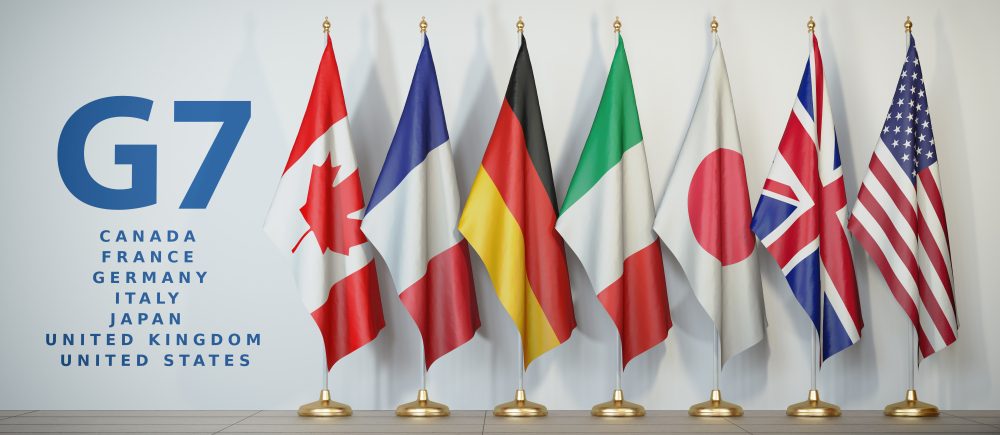The Group of Seven developed nations agreed over the weekend to a minimum global corporate tax rate of at least 15% as part of a broader deal on how to tax multinational companies such as Amazon and Google.
German Finance Minister Olaf Scholz described the deal as “historic.”
“It is very good news for tax justice and solidarity and bad news for tax havens around the world,” Scholz said in a statement. “Companies will no longer be in a position to dodge their tax obligations by booking their profits in the lowest-tax countries.”
“I am delighted to announce that today after years of discussion G7 finance ministers have reached a historic agreement to reform the global tax system,” said British Finance Minister Rishi Sunak, who was chairing the talks in London.
The landmark deal, which took eight years to prepare, represents a major step forward in rewriting a global system that many have said has allowed big companies to save billions of dollars in tax bills by changing jurisdictions. The agreement also paves the way for multinational companies to be taxed in the countries where they make money, rather than just where they are located.
While the Secretary-General of the Organization for Economic Cooperation and Development, Matthias Kormann, said in an interview with BP “There are a number of very large American multinational companies that will end up paying more taxes in countries around the world, and perhaps It is not currently the case.”.
According to the statement released after the London meeting, countries, where the big companies operate, will have the right to tax “at least 20%” of profits above the 10% margin. This will apply to “the largest and most profitable multinational corporations”.
However, these multinationals are unlikely to take major blows to their stock prices on Monday as there are still many hurdles to overcome before this agreement comes into effect.
While the focus will now turn to the July meeting of G20 finance ministers in Italy, as well as the long-running talks between some 140 countries in the Organization for Economic Co-operation and Development.
Additionally, the 10% margin could exclude Amazon, which has lower profit margins than most tech companies. US Treasury Secretary Janet Yellen said she expected to list the e-commerce giant, something she agreed with Corman of the Organization for Economic Co-operation and Development.
However, this quickly illustrated the difficulty of putting the actual numbers into a broad agreement, and the final details still need to be submitted to a deeply divided Congress for approval.
 Noor Trends News, Technical Analysis, Educational Tools and Recommendations
Noor Trends News, Technical Analysis, Educational Tools and Recommendations





